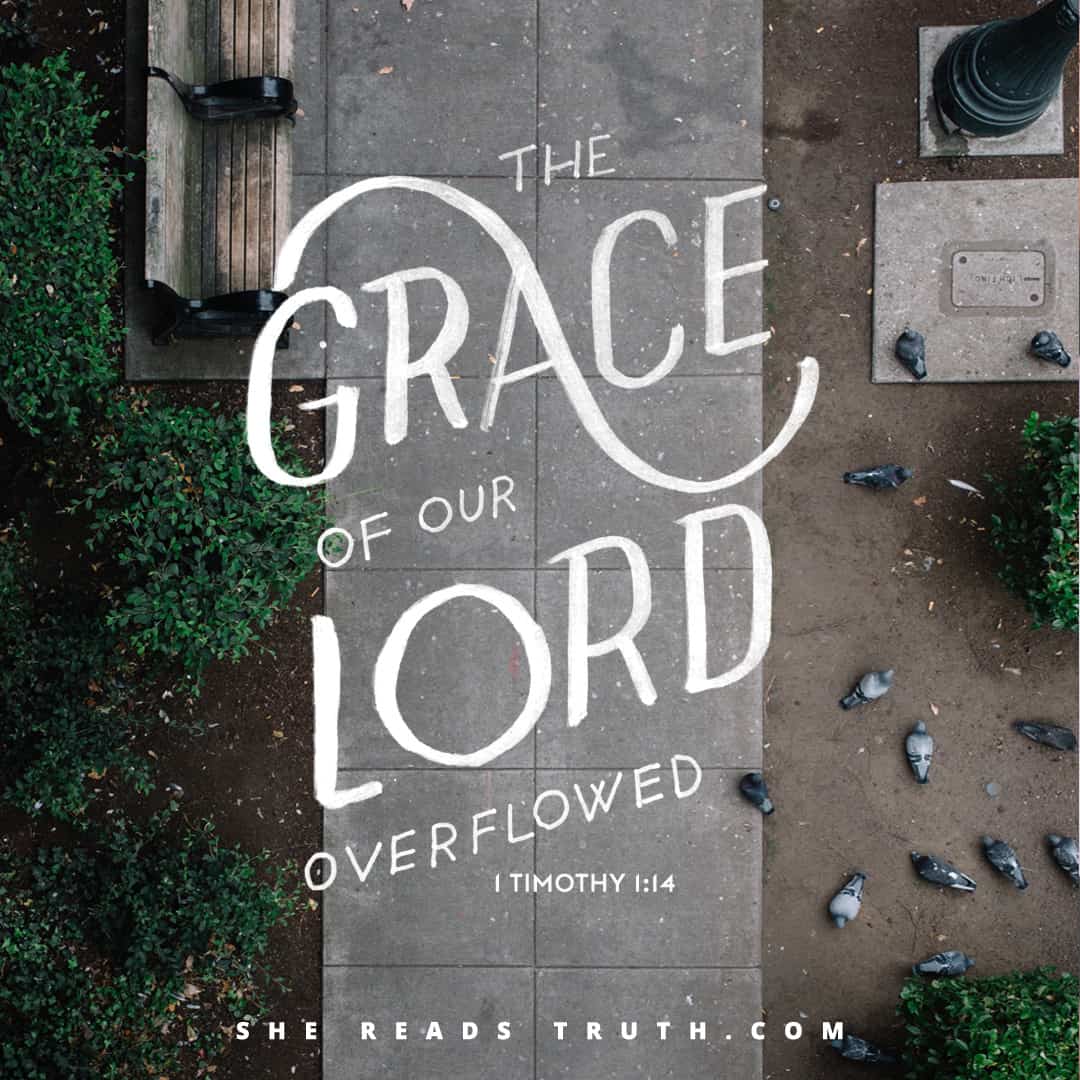David’s Kingdom Restored
Open Your Bible
2 Samuel 18:1-33, 2 Samuel 19:1-43, Romans 5:7-8, 1 Timothy 1:12-17
BY Andrea Lucado
Scripture Reading: 2 Samuel 18:1-33, 2 Samuel 19:1-43, Romans 5:7-8, 1 Timothy 1:12-17
I have to admit I wanted justice to be done to Absalom. I remembered how he had treated David in prior chapters. He betrayed him. Tricked him. Risen up against him. It was wrong, and Absalom needed to be punished. Even though David had given his men strict orders not to hurt him, when Joab took advantage of Absalom’s vulnerable position and killed him, I thought to myself, Well, he deserved it. It gave me the same kind of satisfaction I have when watching a movie and the good guy finally finishes off the bad guy in the end.
Of course, the Bible isn’t a movie. It’s real life. And a few verses later, I was reminded of this. When David hears of Absalom’s death, he cries out, “My son Absalom! My son, my son Absalom! If only I had died instead of you, Absalom, my son, my son!” (2 Samuel 18:33). With those words, my sense of justice deflated and tears came to my eyes.
Absalom was David’s child. David had held him as a baby. He’d watched him grow up. He’d probably taught him to be the strong warrior he was. And though their story took a turn for the worse and reconciliation was needed, there was once a time when father and son ate meals together. They were family.
With David’s grief-stricken response to the news of his son’s death, this story of civil war becomes a story of a father losing his son—a story not unlike our own.
The hard truth is that both Absalom and I deserved the same ending. I betray God with each sin I commit. I try to manipulate His will. I go my own way, as if I am the king of my life and He is not.
This is true of all of us. But this is also true: “God demonstrates his own love for us in this: While we were still sinners, Christ died for us” (Romans 5:8). This is what changed the ending for us. We were headed toward a sure death due to our own sin, but God in His kindness sent His Son to die in our stead, so that we could be reconciled to our Father.
The father-son story in 2 Samuel 18 is a tragedy. David never got to reconcile with Absalom. He did not get to give his life so Absalom could live. Though our story parallels Absalom’s, our ending turns in the opposite direction. Because of Christ, we are reconciled to our Father. Because of Christ, we have victory over death. Because of Christ, Paul’s words are ours too:
Christ Jesus came into the world to save sinners—of whom I am the worst. But for that very reason I was shown mercy so that in me, the worst of sinners, Christ Jesus might display his immense patience as an example for those who would believe in him and receive eternal life.
– 1 Timothy 1:15-16
20 thoughts on "David’s Kingdom Restored"
-
I know this is a little off topic but while reading today’s text and seeing Mephibosheth mentioned I was reminded of covenant and how important it is. I’m always amazed at the kindness King David showed Mephibosheth after Saul and Jonathan’s death and all because of his covenant with Jonathan. Thank you Jesus for your covenant with me. Thank you that it will never fail. Thank you for the blood of Jesus that saves me, heals me, delivers me and sets me free. God is good!
-
I think Absalom felt 100% justified when looking at how David handled Tamar’s rape. David handled that situation abysmally and no where does it say that he ever turned to the Lord for guidance. So for me, I changed up the wording to today’s devotional a bit. We were headed to a sure death due to our sin (although this sin felt 100% justifiable)… but God in His kindness sent his son to die in our stead as an example.
I love how the David story foreshadows the Christ story. It’s a wonderful illustration of the evolution of our faith.
I’m also interested in how Joab is chief troublemaker #1, and yet David’s own son had to die before he did anything about it. What should we do with the Joab’s in our own lives? Strip away their power for one and pray for them. In what ways am I a Joab in God’s kingdom?
-
These last few chapters in 2 Samuel, at first, were confusing to me. I think I was trying to figure out who was the hero and the villain. In superhero movies, the hero and the villain are, more often than not, very clearly defined down to the shade of attire. However, I realized, that what separates the protagonist from the antagonist is not the positive or negative actions or even the clothing. What defines these two contrasting characters are the beliefs that guide their actions. For example, in the antagonist we see a choice to harbor resentment, anger, distrust, and hurt. In the protagonist, although it is difficult, we see a choice for forgiveness and ultimately, love. Conceptualizing this difference helped me understand the dynamic between Absalom and David. Absalom, in his anger and desire for justice regarding the wrongs committed toward his daughter, committed murder. Then, out of shame, Absolom fled. The verses following Absolom’s act did not say that David wanted Absolom dead. There was no external motivation for absolom to flee. Just like Adam and Eve in the garden, Absolom hid because of his shame. After many years, David was approached by wise servants and listened to their counsel. David was not too haughty to listen to others. Despite his hurt and morning, he chose to begin the process of forgiving. David could not yet be in the presence of Absolom, I imagine because of hurt. Lets pause here and look at this action from David. Was it right to ignore absolom and the family he was building? Absolom later took David’s inability to be in his son’s presence as further rejection, or refusing to forgive. I think that we often think that forgiveness is immediate. “Forgive and forget” is the phrase. But forgiveness takes time! When a relationship has been broken, it takes time to heal. I can only propose that David needed more time before he could come to a point of reconciliation. What matters most in the journey to forgiveness is that you get to the part of forgiving. Forgiveness does not mean immediacy. It does not mean that you have to pretend like no wrong was committed. The relationship will be different, but when we chose forgiveness, we chose growth. Forgiveness begins a pattern of being open to God’s voice for future generations. Now that we have discussed misconceptions of forgiveness, let’s look at Absalom’s reaction after David offered reconciliation through a fatherly kiss. Absalom’s hurt was all he could see. He chose to hold onto the idea that, “my father is ashamed of me” and “he does not want a relationship”. Even though Absalom chose these beliefs, David did not become angry. He defended himself, but in ways that were not meant to bring death to Absolom. Grace was in David’s actions. I wonder how often do we chose to believe the shame instead of the forgiveness when it comes to our relationship with our Heavenly Father? I know I am prone to hiding. I often build my own armies just as Absolom did. I have family members whom I mourn for and I’m sure my heavenly father mourns for because their army building has resulted in spiritual death and denial of God’s grace. Lord, in what ways does my shame cause me to hide parts of myself from your grace? You are my protector. You show me that I am your daughter daily. I don not need to protect myself from You. Break down my armies with your grace.
-
I love this insight. Thank you for
Sharing! -
Thank you for sharing!!! I needed to hear this!!♥️
-




Post Comments (20)